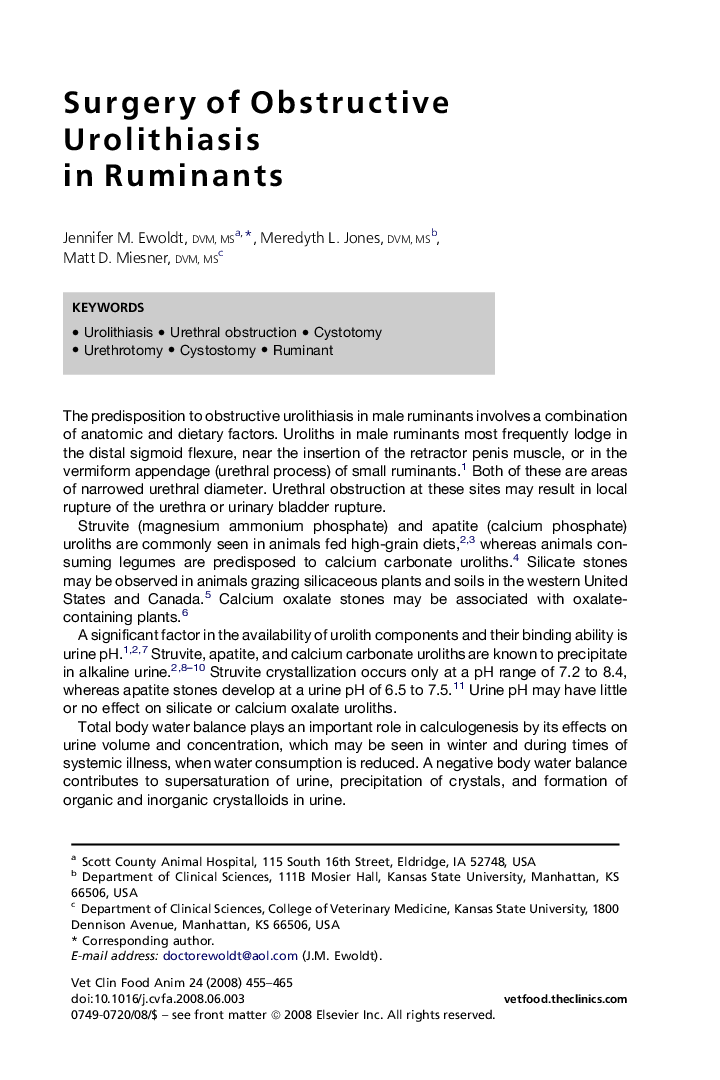| Article ID | Journal | Published Year | Pages | File Type |
|---|---|---|---|---|
| 2459796 | Veterinary Clinics of North America: Food Animal Practice | 2008 | 11 Pages |
Abstract
Most cases of obstructive urolithiasis will require surgical intervention at some point during the treatment process. Fluid, anti-inflammatory, antibiotic, and acidifying therapies should be used in support of surgical intervention. Surgical technique may be chosen based on the characteristics of the individual case, including site of obstruction, location of the rupture, and value of the animal. Prevention remains the mainstay of urolithiasis management. Identification of a case of obstructive urolithiasis should trigger action for the affected individual and the entire herd or flock of origin.
Related Topics
Health Sciences
Veterinary Science and Veterinary Medicine
Veterinary Science
Authors
Jennifer M. DVM, MS, Meredyth L. DVM, MS, Matt D. DVM, MS,
